The past year has definitely changed our vision of things. That said, just how clear is your actual vision? They say that the eyes are the windows to the soul, but you’d be surprised as to how much they can actually reveal.
So, where do you start if you want to clear up your vision? After all, the last thing you want to do is make things blurrier. Thankfully, Longevity LIVE created Wellness Wednesdays – a weekly Instagram interview at 19h00 SAST hosted by the founder of the World of Longevity, Gisèle Wertheim Aymés. Joined by a different expert each week on @longevity_live. Gisèle and her guests will help you take baby steps with facts and points.
The series will not only help you clear up your vision, but it’ll and improve your health and wellness journey.
Kelly Eekhoud: Just How Clear Is Your Vision?
Kelly Eekhoud is an optometrist and the managing director of Spec-Savers, The Marc in Johannesburg, South Africa. Spec-Savers is a retail chain that is focused on providing optometry, audiology, and other healthcare services.

Photo by Ksenia Chernaya from Pexels
When it comes to her job as an optometrist, Eekhoud approaches her patient’s health as a whole,
“I don’t just look at their eyes and see what their eye issues are. All of my patients know that as soon as they sit down in my chair, they’re about to undergo quite an extensive case history, and I’ll make sure that I’ve covered every base touching on both their eye health and general lifestyle,” she says.
Your eyes are the windows to your health
During each check-up, Eekhoud revealed that she began asking targeted questions about her patient’s eyes and vision before moving onto questions about their general health, medication they may be taking, as well as their lifestyle habits.
Chronic health on vision
Many people may not know this, but chronic health conditions can also affect your eye health. This is why Eekhoud makes sure to question her patients about whether they’re diabetic or suffering from high blood pressure, as both of these factors can affect eye health.
“It’s a systemic issue with the entire body, but it’s amazing what you can pick up in the eye just by looking at the retina and the blood vessels of the retina” explains Eekhoud, adding that the eyes might be the only organ in the body that you don’t have to cut into it to get a look at it.
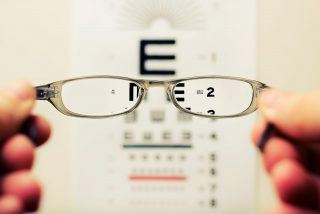
Photo by David Travis on Unsplash
“You can see the blood vessels in their natural state and from there, you can pick up any issues. For example, specifically with diabetes, you get areas of ischemia and areas of bleeding, and you can pick it up in the eye, and you can almost guarantee that it’s happening everywhere else in the body.”
Eekhoud also shares that the same thing is true for high blood pressure, as they can present in very similar ways, although they do have specific causes and presentations.
It’s becoming a four-eyed world
Have you noticed that everyone seems to be wearing glasses? Now while it’s great that more and more people are being more conscious about their vision, one really has to ask – is the world losing its sight?
According to Eekhoud, there are two contributing factors that can influence the development of your eyes – genetics and environment.
Your environment is an eye-sore
When we’re born, we are far-sighted (a prescription of +2) and the older we get, the precription moves to 0. In some cases, some people can move beyond the 0 mark and become near-sighted, resulting in a minus prescription.
That said, Eekhoud has found that children are becoming near-sighted at an earlier age than previously.
“It’s not so much specifically digital devices that’s causing this change, but more so the focus that is close up.” says Eekhoud, “More and more parents are giving their kids their tablets and phones to keep them occupied and while this is ‘great’, what parents don’t realize is that they’re shifting their kid’s focus within a couple of centimeters from their eye and they’re basically overstimulates the system which encourages their visual system to be more near-sighted.” 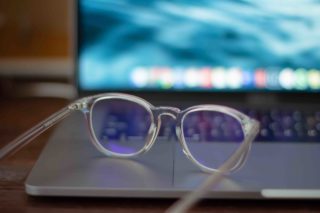
Eekhoud adds that as more of us are within a meter of our eyes, eyes are now developing with each and every generation to focus on tasks that are nearsighted.
“The problem is that we still need to use our eyes to drive, to look at things in the distance, and to make sure that we can shift our visual focus from a distance to a reading environment.” says Eekhoud. She adds that as more and more kids are looking at their devices, particularly because of distance learning triggered by the pandemic, a huge environmental factor is causing a spike in near-sightedness.
The future of our eyes
Eekhoud encourages parents to pay attention to how their children watch TV. Are they sitting too close to the TV? Are they turning their heads to one side?
While you can test kids from birth, parents will typically pick up vision concerns when their children start to use their eyes more, such as when they start school. Eekhoud says that you can always take your child to a pediatric optometrist and that some schools even offer tests.
Are you a contacts or glasses person?
Before you answer this question, it’s important to remember that the starting point is, and should always be, an eye test,
“We need to understand what the problem is in order to give you the best options that are going to fix that problem.” says Eekhoud.
Spectacular living
 In terms of spectacles, and lens design, there are 4 different types of lenses (standard vision lens, accommodative support lens, bifocal lens, and multifocal lens) and you will be put into one of these lenses, based on your eye concerns.
In terms of spectacles, and lens design, there are 4 different types of lenses (standard vision lens, accommodative support lens, bifocal lens, and multifocal lens) and you will be put into one of these lenses, based on your eye concerns.
“Yes, there are some disadvantages to wearing glasses, but it’s the patients decision as to whether they want to wear them or not.” says Eekhoud, who mentions that patients who choose to soldier through not wearing glasses end up having to face unnecessary pain and discomfort.
Contact lenses
Unfortunately, contact lenses are not for everyone.
“Some people suffer allergies, and with that they suffer from dryness of their eyes and those people need to think twice before using contact lenses.” explains Eekhoud. She adds that these individuals need to weigh up the pros and cons of using contact lenses. After all, you’re putting a piece of plastic into your eye and that is going to affect the health of your eyes as it is going to cause extra dryness and it could also be a little more uncomfortable.
“The use contact lenses needs to be evaluated to see if patients can tolerate it” says Eekhoud, “I also have patients that are extremely sensitive when you put something in their eye, and I also have patients who don’t even feel the contact lenses, so you really need to go through a trial period when it comes to contact lenses”
Lasered vision
While there continue to be advancements when it comes to surgeries that can improve vision, Eekhoud points out that there are lots of factors involved when it comes to one’s eligibility for eye surgery.
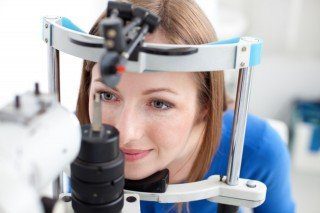
baranq/shutterstock
“My experience with it is that you need weigh out the benefits of the procedure as it won’t necessarily eliminate the need to wear glasses as you may still need glasses for things like night driving or reading.” she says.
That said, Eekhoud adds that if your vision is dysfunctional and can’t find a suitable lens, then you may want to consider Lasik surgery,
“It won’t make your vision perfect, but it will improve your focal vision.” That said, Eekhoud recommends going for a consultation with your optometrist so that they can confirm whether or not you should consider the procedure.
Shade your eyes
Sunglasses look great and they’re fun, but should we be paying more attention to what they can do for our eyes, and less on how great they look?
 “Sun protection in South Africa is very important because we have a very high UV index and our eyes absorb a fair amount of blue UV light which is very damaging to the eyes.” says Eekhoud, explaining that these UV rays can cause damage to our cornea, retina, and crystal lime length. She adds that some demographics are more susceptible to this type of degeneration, such as individuals that are more fair.
“Sun protection in South Africa is very important because we have a very high UV index and our eyes absorb a fair amount of blue UV light which is very damaging to the eyes.” says Eekhoud, explaining that these UV rays can cause damage to our cornea, retina, and crystal lime length. She adds that some demographics are more susceptible to this type of degeneration, such as individuals that are more fair.
So, if you are going to wear sunglasses, Eekhoud recommends that you use sunglasses that have a very good UV barrier. These sunglasses will have a UVA/B sticker on them in the stores.
Blue light lenses
Blue light are rays emitted from the sun, but we mostly get them from our electronic devices. Unfortunately, blue light can affect our health in a number of ways from our sleep, the rate at which we age, as well as our vision. As such, it’s important to monitor our exposure, and this is why there’s been an influx of blue light regulating apps and glasses.
“Blue light lenses regulate the exposure of blue light but do not cut it out entirely as you need blue light to regulate your sleep cycle and mood.” says Eekhoud, “We don’t want to cut it out, we just want to prevent overexposure”
Visionary diet
If you’re looking for ways to improve your vision, could you use your diet?
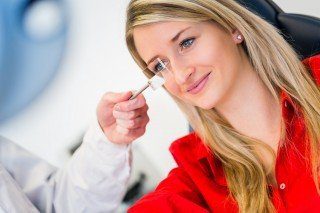
l i g h t p o e t/shutterstock
“If you suffer from dry eyes, taking an Omega 3 supplement can definitely help with the dryness” says Eekhoud. However, she does add that a lot of research has shown that supplements cannot help prevent macular degeneration, but they can slow the process down once you’ve been diagnosed. Moreover, there has also been research that found that supplements may also serve to accelerate the degeneration so it is a tricky subject.
Eekhoud does suggest Vitamin A as it’s really good for your retina. So while Eekhoud cannot say that certain supplements can prevent things from happening, you can definitely supplement and support your visual health, preferably with leafy green vegetables.
Making up your vision
If you’re a big fan of makeup, could that be affecting your vision? No, unless you’re not removing your make-up properly.
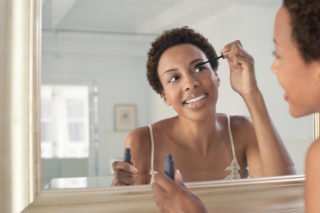
sirtravelalot/shutterstock
“When makeup is not removed properly, it drys up the area and this is dangerous.” says Eekhoud, “Also, taking make-up off with fragrance removers may cause allergies and problems.”
So what’s the best way to remove eye makeup?
Eekhoud suggests using a hyperallergenic makeup remover. Her favourite is the vegan-friendly Chrissanthie Eye Cleanse Foam.
Foggy glasses
As we are still experiencing a pandemic, it’s important to keep your mask on. However, for those who wear glasses, this creates a bit of a foggy situation.
“I’ve seen a lot of patients move into contact lenses because they can’t stand the foggyness of their glasses” says Eekhoud. She advises that you start using masks that have an airtight seal. Additionally, you can also purchase lens clothes that help to reduce the fogging of the lenses. You could also fill up an ice cream container with water and place a few drops of sunlight liquid. After this, put your glasses in the liquid and let it air dry.
Bottom line
“People think that their vision is perfect, but in reality they turn out to be far-sighted and overstraining their visual system. Even though can see, we can make it so much easier for you. Therefore, it’s important to have your eyes tested regularly.”
WATCH THE INTERVIEW
The video interview with Kelly Eekhoud contains the entire dialogue of this interview, and you can watch it below.
View this post on Instagram


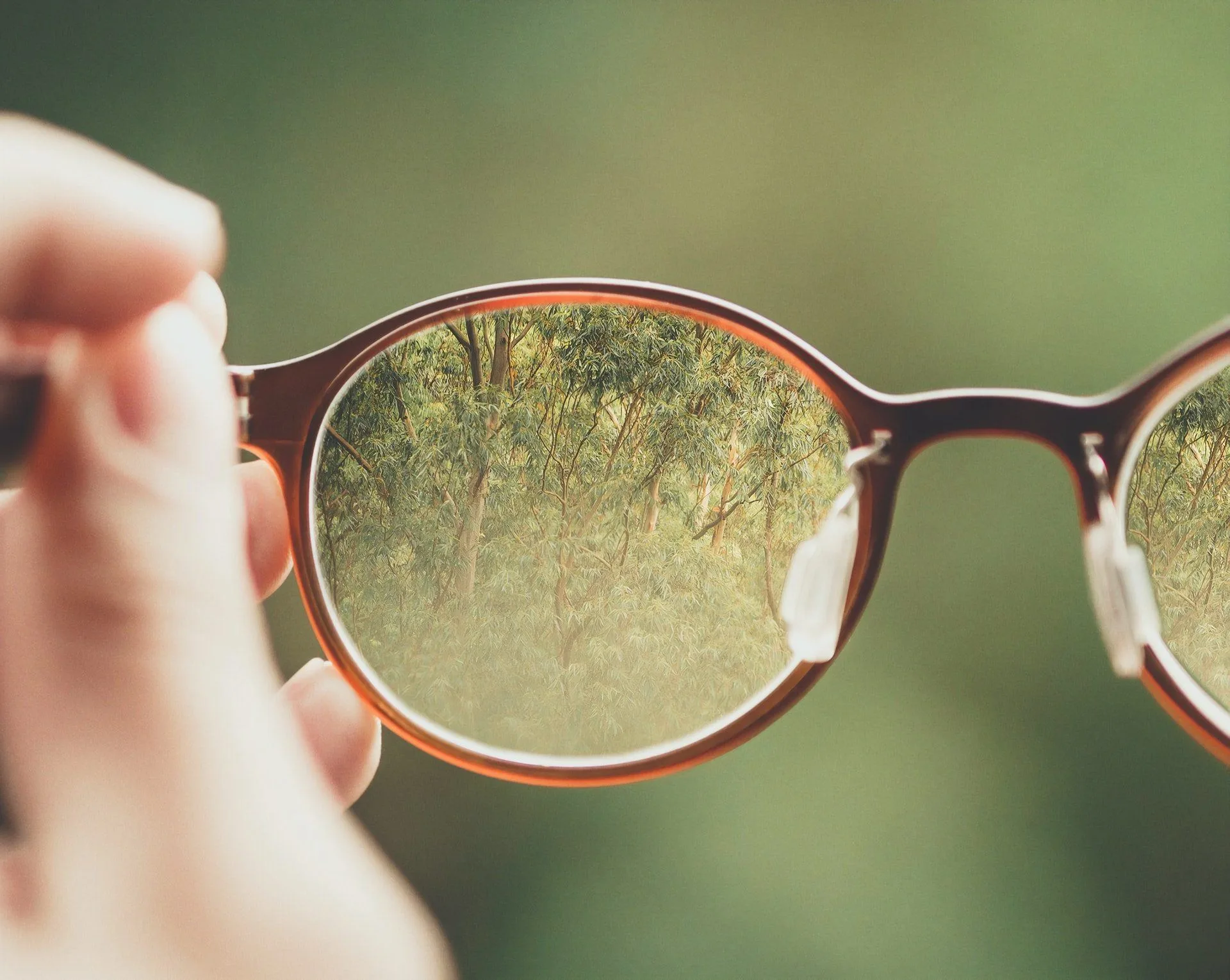


![women [longevity live]](https://longevitylive.com/wp-content/uploads/2020/01/photo-of-women-walking-down-the-street-1116984-100x100.jpg)










